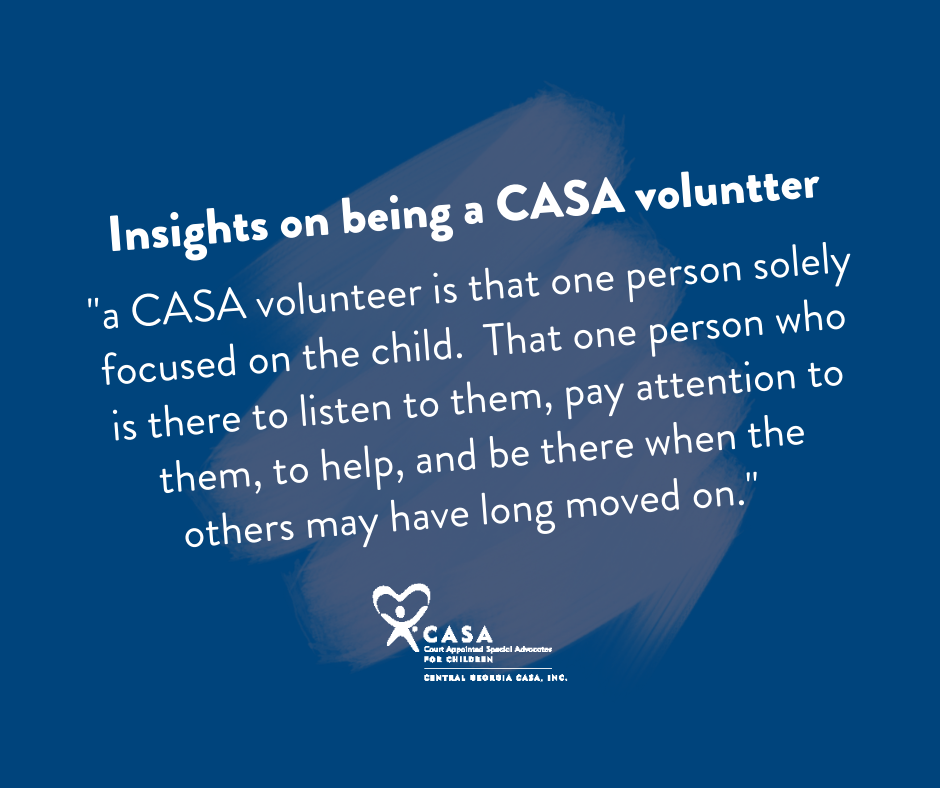Insights on being a CASA volunteer by Rann Capps

So many people truly misunderstand what CASA does. I’ve seen the fear and anger in parents’ faces, frustration of being an unwelcome annoyance in someone’s home, another layer of bureaucracy or an obstacle to their plans. I’ve also been viewed on the opposite end of the spectrum as the only one they thought were telling them the truth, or even their sole communication in the case. With the children, it’s always the same. They know I’m there to see them, to pay attention to them, to help them and just to be there as a familiar face.
CASA doesn’t control the case, the reason events unfolded as they did, nor the eyes and ears of the “State”. Some may even think CASA is the sole power dictating the outcome of that case. No, it is not. It’s the court. It’s the Judge who sits on that court who has the final word. It is not CASA’s place to judge. It’s CASA place to advocate for the child.
To me, a CASA volunteer is that one stable element in a child’s life that’s been turned upside down, torn apart, and all things familiar have been taken away. I’ve been told that sometimes kids think bad parents are better than no parents at all. But, then we have a child with multiple foster homes coming into play, social workers who rotate in and out, court hearings with strange unknown people, and some wonder why a child would think bad parents are better than none at all? Nothing stays the same for very long, except that one CASA volunteer who remains there until the end of the case.
A CASA volunteer IS that one enduring element as others come and go, as court hearings materialize, and as foster homes become more of a weekend respite awaiting the next temporary stop. For those embarked in that journey, life becomes more and more impersonal and cold. These children can quickly become desensitized to the events around them; they simply become a commodity caught within the system processing the rule of law.
However, a CASA volunteer is that one person solely focused on the child. That one person who is there to listen to them, pay attention to them, to help, and be there when the others may have long moved on. The CASA volunteer is that one familiar, caring face in which that child will recognize and come to trust.
The State can be viewed as an impersonal, if not cold entity. However, in my opinion, one of the roles of CASA is to put a face on the proceedings. We can restore that child’s faith that someone is there who cares, who can make a difference, that will be there when no one else will be, and on guard against them falling through the cracks in the system.
It’s just not another case for that child: It’s THE case of their lives. It’s setting the foundations of what may very well affect them for the rest of their lives. It can make the difference between giving a child a real shot at life or just becoming yet another statistic.
If I have any advice to those just embarking on their own CASA journey, it would be to always keep that inner child inside you alive. Sometimes it helps to think like a kid because if you don’t, a five-year-old will get one over on you every time.
